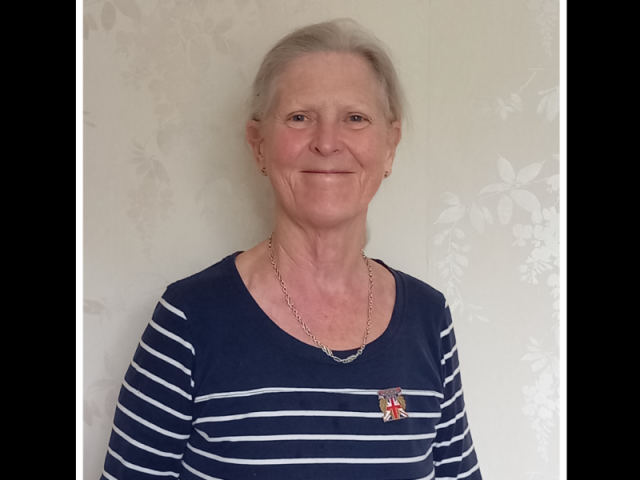
A new UK-wide service makes it easy for people in Wales to take part in health and care research
16 June
Be Part of Research helps people find suitable health care research studies based on their interests, where they live - as well as their age, sex and ethnicity. People can sign up online and choose the health conditions for trials they would like to take part in, for example heart disease and diabetes. They are then sent clear information about suitable study opportunities for them by email - making it easier than ever to find and take part in vital health and care research.
Carol Barrett, 70, a biochemist from Cardiff, took part in the TIPTOE study, supported by Health and Care Research Wales, investigating a personalised support programme that aims to improve the lives of people living with knee and hip pain. Carol said:
“I had struggled with recurring knee pain for nearly 30 years, but it wasn’t until I was in my late 60s that I thought: I need to sort this out before it becomes a bigger issue later in life.”
How did you find out about the study?
Carol is a subscriber to our Today’s Research bulletin and receives weekly research updates and opportunities to take part in research in her inbox every Friday.
“I saw the opportunity to take part in the TIPTOE study in the bulletin and decided to sign up.”
What was your experience of taking part in the study?
In the study, participants were randomised into two groups: one received NHS care as usual, while the other group took part in up to six one-to-one sessions with a trained healthcare practitioner over six months, in addition to any usual care they were already receiving.
Carol was assigned to the group testing remote consultations and the My Joint Pain website to create a personalised exercise plan. Carol noticed when she was exercising her left leg was stronger than right, she said:
“When I ski, I'm much stronger in one direction than the other.
“My assigned physiotherapist guided me through the website and helped me identify exercises that targeted my weaker right leg.
Over the course of the study, Carol noticed real improvements in her knee strength when exercising. She added:
“I felt supported throughout the process thanks to the regular phone check-ins.”
What happened after the study was completed?
At the end of the study, participants were asked to fill in a questionnaire about their experiences. One question in particular led Carol to an unexpected discovery. There were three crucial questions at the end of the questionnaire:
- Have you had COVID-19 recently?
- Has your knee pain worsened?
- Have you been referred to a COVID-19 rehabilitation clinic?
Carold said:
“That’s when I realised my knee pain wasn’t just a lingering issue but it might have been linked to inflammation caused by Long COVID.”
“Thanks to the study, I was referred to a COVID-19 rehabilitation clinic and it was life-changing.”
At the clinic, Carol joined a structured programme where she attended group sessions led by a multidisciplinary team, including physiotherapists, occupational therapists and dietitians. Other people living with Long COVID were also part of the sessions and share their symptoms of living with others. Carol said:
“It helped me recognise that I had a whole range of Long COVID symptoms I hadn’t even connected before.
“The support I received was fantastic and even though I’ve now completed the programme, I can self-refer back if I ever need to.”
Where would we be without research?
For Carol, research is about more than just discovery, it’s about real, tangible improvements to people’s lives. She said:
“Properly targeted, high-quality research advances mankind and it needs to include patients.
“We’re the experts in our own conditions. By including patient voices, research can be even more effective.”
Read more about other participants’ experiences of taking part in the TIPTOE study. And if you wish to take part in a range of health and care research studies sign up to Be Part of Research.